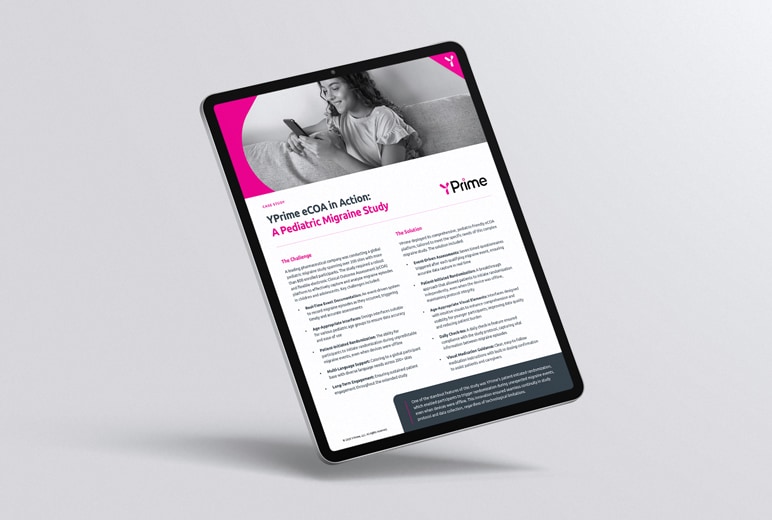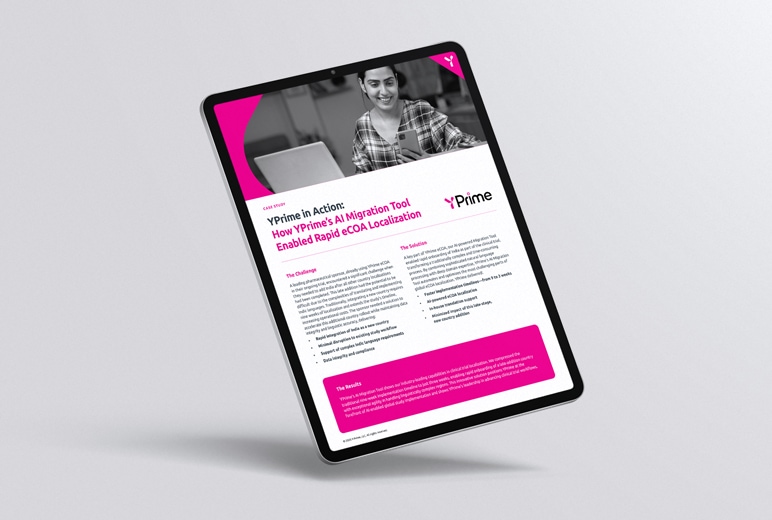Clinical Trial Outlook for 2025: 6 Perspectives on Top Priorities
Embracing Collaboration, Technology, and Patient-Centricity
The clinical trial landscape is a complex ecosystem where diverse stakeholders must work in harmony to achieve shared goals. As we approach 2025, the key to success lies in fostering symbiotic relationships that accommodate various perspectives while driving innovation. By understanding and integrating different priorities, we can streamline processes, reduce costs, and ultimately improve patient outcomes.
In this forward-looking analysis, six (6) YPrime subject matter experts offer their unique insights into the priorities shaping the future of clinical trials. From data management to compliance, project management to eCOA solutions, these perspectives highlight the interconnected nature of our industry and the common threads that bind us all: efficiency, transparency, and patient-centricity.

Greg Wellbrock,
Vice President, Cloud Architecture and Data
In 2025, sponsors, site staff, and caregivers will need real-time, actionable data to make informed decisions quickly. Technology providers must prioritize this by delivering a modern data stack that leverages standardized CDISC data to empower sponsors, improve trial efficiency, and enhance patient care with streamlined, reliable information.

Steve Begley,
Chief Compliance Officer
For 2025, stakeholders in clinical trials seek confidence, efficiency, and simplicity. With greater focus on data integrity, security, patient-centricity, and inspection-readiness, the keys to success lie in being transparent, providing objective evidence for decisions, and experience-based recommendations to keep all stakeholders informed and consistently aligned.

Jon Paras,
Senior Vice President, IRT Strategy
For IRT in 2025, we are hearing more sponsors asking for access to all their clinical data in one place. While protocol-level datasets will always be needed, we are seeing a shift toward program- and sponsor-level datasets that will ultimately help sponsors make better decisions.
Clinical trial professionals preparing for 2025 have the power to shape a more efficient, patient-centric, and data-driven future. By embracing technological advancements, prioritizing user experience, and maintaining a steadfast commitment to data integrity and patient care, we can collectively drive innovation and improve healthcare outcomes for all.
Are you prepared to drive efficient and more patient-centric clinical research in the year ahead? At YPrime, we simplify clinical trials with eCOA, IRT, and eConsent solutions that combine speed, flexibility, and data quality. Connect with one of our experts today.
More About Our eCOA
YPrime’s eCOA platform enhances patient compliance with an intuitive app and easy-to-use design, streamlines site workflows through a powerful eCOA Portal, integrates with connected devices, and supports sponsors with real-time dashboards for better decision-making. Delivering study startup 47% faster than industry benchmarks, our pre-validated eCOA mitigates delays with easy-to-use configuration. AI-powered localization accelerates globalization, improving inclusion and data integrity while reducing timelines and costs. Learn more at www.yprime.com/ecoa.
Check Out Our Other eCOA Resources
about trial design, data capture, operational efficiencies, and, ultimately, solving for certainty in clinical research.





